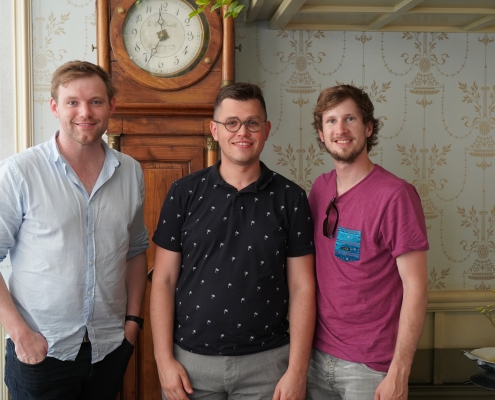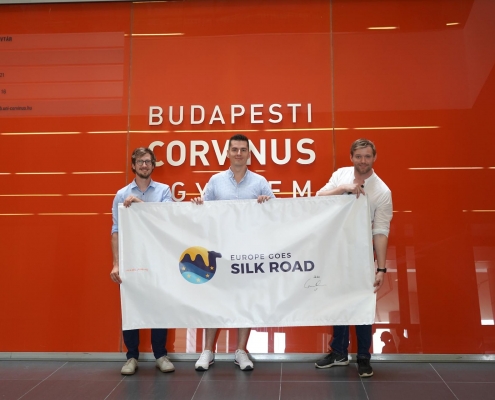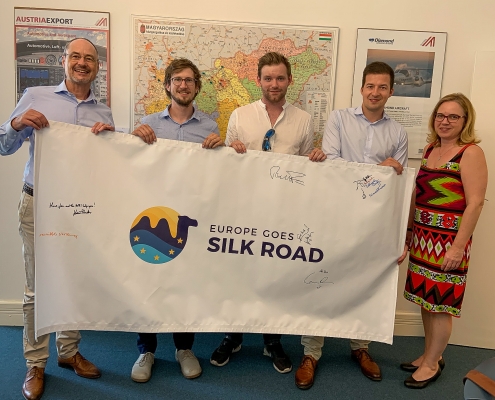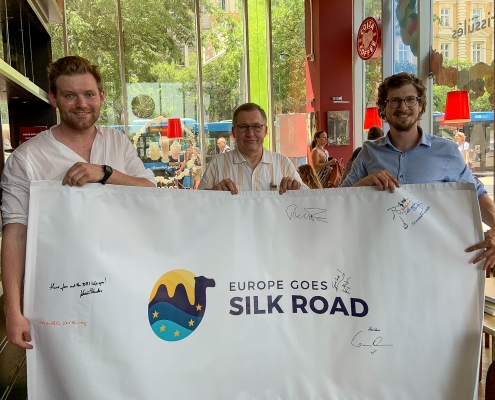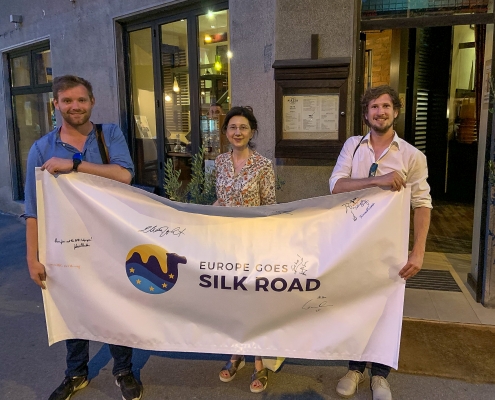Lunch break with Matej Šimalcík
Special thanks to Alfred Gerstl who made this possible.
Meeting with Tamas Matura
Together with Tamas Matura from the Corvinus University of Budapest, we discussed EU-China relations and why Europeans do not understand the Chinese way of strategic thinking and thus not the Belt & Road Initiative.
Meeting at the Antall József Knowledge Centre
Meeting with Jürgen Schreder
We are very thankful for the hospitality and support of Jürgen Schreder, Commercial Counselor of the Austrian Embassy – Commercial Section in Hungary, and his team. We discussed the impact of EUROPE GOES SILK ROAD for Europe and its prospects as well as the new Chinese presence in Eastern Europe.
Special thanks to Matthias Mündl who made this possible.
Meeting with Sándor Kusai
Sándor Kusai, former Ambassador of Hungary to China, Mongolia and North Korea, and lecturer at the Pázmány Péter Catholic University in Budapest, offered us eye-opening insights into the Chinese way of thinking and strategic development of the Belt & Road idea in order to reorganize “Afroeurasia”.
Special thanks to David Morris who made this meeting possible.
Meeting with Dragana Mitrovic
We met Dragana Mitrovic, head of the Centre for Asian and Far Eastern Studies at the University of Belgrade, and learned about the reality of Chinese activities in the Balkans and China as an alternative economic partner for Serbia to the European Union and especially Germany.
Special thanks to Predrag Jurekovic who recommended us Ms. Mitrovic as an insightful and independent observer of these developments.


